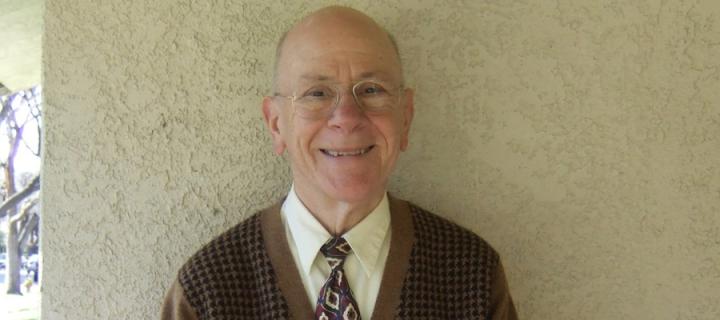Donald Chatfield
Donald Chatfield was drawn to Edinburgh by New College’s international reputation.
| Name | Donald F. Chatfield |
| Degree Course | Ph.D. |
| Year of Graduation | 1964 |

Your time at the University
I chose New College at Edinburgh University because I knew other American Presbyterian clergy who had studied there. It seemed the perfect place for postgraduate work because of the high calibre of the New College faculty, and because I would be in the capital city of Scotland, with all its cultural, educational and social advantages. I arrived in the fall of 1960. I found a flat in North Morningside, and I always enjoyed the beauty of my daily walk to the College across The Meadows and along George IV Bridge to The Mound.
I already had my BD and was ordained, so through the Church of Scotland Office on George Street, I got frequent supply preaching engagements throughout the southern part of the country. For a student with limited funds, it was a great way to see some of the country. I had one nine-month position as locum tenens (stated supply preacher) in a church in Arbroath, Angus, and got to know that part of the country very well. Really, just getting to know Edinburgh itself was a spectacular treat!
My degree work was in Ecclesiastical History, under the tutelage of the then Principals of both New College and the Congregational College of Edinburgh. My dissertation focussed on the books written from New England during the time of the Westminster Assembly, writings which put forward Congregationalism as the best church polity for the Church of England, and on the other side, the books written in England and Scotland countering the New England writings and arguing for Presbyterianism. The dissertation was entitled “The Congregationalism of New England and its repercussions in England and Scotland, 1641-1662.” I received my degree in 1964.
My favourite story from my years in Scotland: I was once sent as a supply preacher across the country to Glencoe. It was far enough that I had to take the train the night before. A delightful widow of advanced years put me up overnight and made me a lovely supper. As we sat at table together, we could find little in common to talk about. Finally she said, “Mr. Chatfield, what’s your Christian name?” “It’s Donald,” I responded. With great animation she said, “Och, you’re a Donald!” - and then, with an almost whispered intensity, “Wasn’t The Massacre terrible?” I made some lame response, and when I returned to New College on the Monday and asked some of the Scottish students about “The Massacre” during coffee break, I learned for the first time of the infamous Massacre of Glencoe, of February 13, 1692, and of the sorrowful ballad which is still sung about it.
Tell us about your Experiences since leaving the University
I found a flat in North Morningside, and I always enjoyed the beauty of my daily walk to the College across The Meadows and along George IV Bridge to The Mound.
Thanks to my having a PhD from a university as internationally prestigious as Edinburgh, when I returned to the United States I soon got a post as instructor in homiletics at Princeton Theological Seminary in Princeton, New Jersey, where I had done my Bachelor of Divinity work.
After my three-year stint there was over, I was appointed Professor of Preaching at Garrett Theological Seminary, a United Methodist graduate school of theology on the campus of Northwestern University in Evanston, Illinois, where I spent the rest of my career. During that time, I often had interim preaching responsibilities, mostly in congregations of the Presbyterian Church (USA).
I published a volume of story-sermons, Dinner with Jesus. I retired in 2001, and, with my spouse, the Rev. Judith Lane Chatfield, M.Div., D.Min. (a minister of the United Church of Christ), now live in a retirement community in southern California.
Edinburgh University continued to inspire and inform my work (and, still, my life), especially through New College, with its stimulating combination of demanding scholarship, international contacts and influence, deep roots in the church, and the continuing influence of its varied, brilliant and notable faculty and graduates.
Alumni wisdom
Where possible, occasionally sit in on classes not in your field(s) of interest. Edinburgh has for decades been noted for its fine lecturers in many departments - I found such visits broadening and stimulating.

